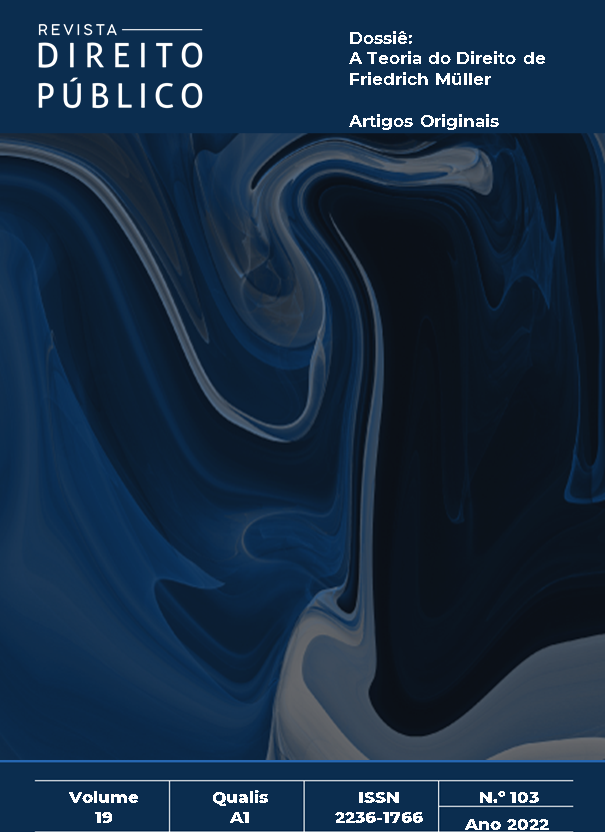Prisão Preventiva, Dever de Fundamentação das Decisões Judiciais, Ativismo Judicial e Respeito aos Precedentes: Estudo de Casos do Superior Tribunal de Justiça
DOI:
https://doi.org/10.11117/rdp.v19i103.6625Abstract
The Judiciary has taken part in the discussions and deliberations on topics that, as a matter of priority, should be discussed and defined by the other Powers of the Republic, generating questions about the limits of the separation of Powers. This situation increases their exposure to criticism and demands a greater argumentative burden, in the sense of rationally justifying decisions. This article takes as a premise the idea that the Judiciary, especially the Higher Courts, have constitutional legitimacy to determine the implementation of fundamental rights, in the face of unconstitutional omissions by the other State branches. The primary scope is to assess whether the decisions of the Superior Courts on the possibility of ordering preventive detention, after the enactment of Law n. 13.964/2019, observe the system of precedents and whether judicial activism is present in the interpretation and application of the law. Pure bibliographic and documental research is used. Regarding the approach, the research is qualitative. And, finally, regarding the objectives, descriptive and exploratory research is carried out. An analytical comparison was made between the reasons for deciding in the Ordinary Appeal in Habeas Corpus n. 131.263/GO and “Agravo Regimental” in Habeas Corpus n. 648.107/ES, both judged by the Superior Court of Justice, which deal with preventive detention. It seeks to demonstrate that non-compliance with the system of precedents combined with strong judicial activism cause legal uncertainty, in addition to being an affront to the Rule of Law itself.
Downloads
Published
How to Cite
Issue
Section
License
Copyright (c) 2022 Direito Público

This work is licensed under a Creative Commons Attribution-NonCommercial 4.0 International License.
O(s)/A(s) autores(as) dos manuscritos submetidos concorda(m) com as regras a seguir:
1) Todos os autores e autoras participaram do trabalho, são responsáveis pelas ideias e conceitos nele emitidos e atestam sua conformidade com os princípios éticos exigidos.
2) Todos os autores e autoras concordam com a forma final do trabalho e em ceder os direitos para publicação nos canais de publicação da Escola de Direito do IDP.
3) Todos os autores e autoras informam que o manuscrito é de sua autoria e assumem a responsabilidade pelo trabalho, declarando que a obra a ser publicada não infringe quaisquer direitos de propriedade intelectual de terceiros.
3.1) Em caso de submissão simultânea, além da reprovação imediata do artigo e comunicação ao(s) respectivo(s) periódico(s), a Revista Direito Público se reserva o direito de não receber novas submissões de todos os autores implicados pelo prazo de 2 (dois) anos, contado a partir da data de ciência do fato.
4) Todos os autores e autoras autoriza(m) a edição de seu trabalho e cede(m) à Escola de Direito do IDP os direitos de autor para reproduzir, editar e publicar ou veicular o citado trabalho em qualquer forma midiática, resguardada a autoria, em particular sob forma digital, em arquivo eletrônico online na Internet, bem como armazená-los em seu repositório de acordo com o desenvolvimento do processo editorial. Esta concessão não terá caráter oneroso para a Escola de Direito do IDP, não havendo remuneração sob qualquer modalidade pela utilização do referido material, tendo este o caráter de colaboração científica.












